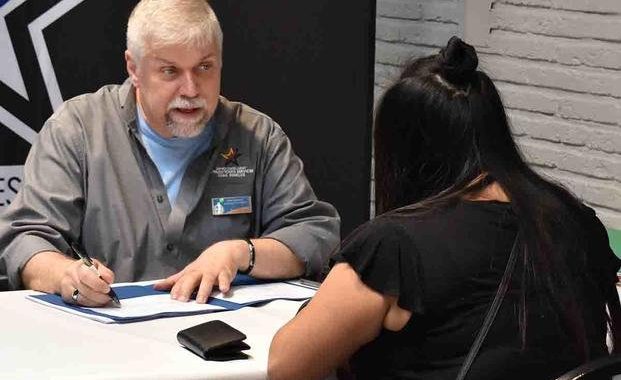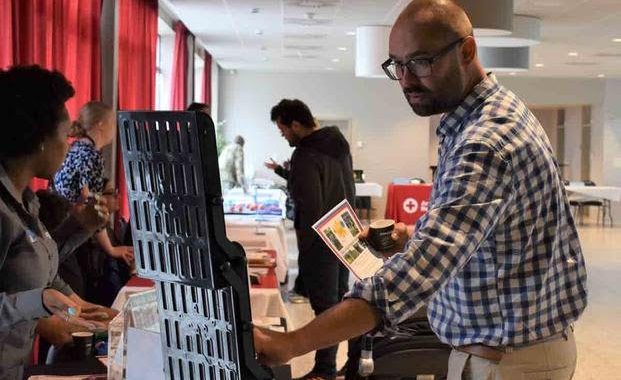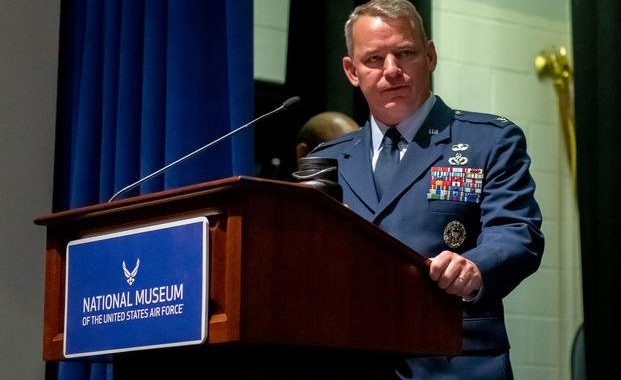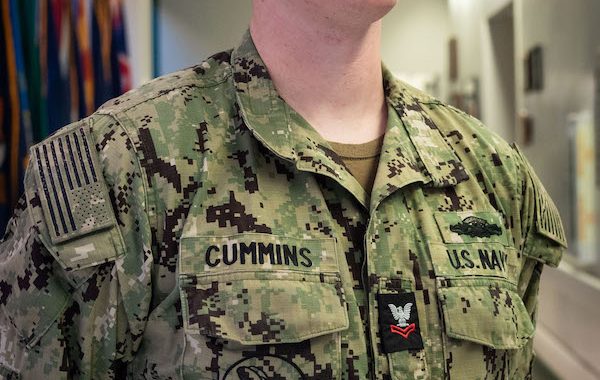AF Civic Leaders Experience AETC Mission to Recruit, Train and Educate Exceptional Airmen
4 min read
JOINT BASE SAN ANTONIO, TX, UNITED STATES
Story by Brian Lepley
502nd Air Base Wing Public Affairs
Thirty civic leaders from 20 states and Guam gained insight into Air Education and Training Command’s mission and initiatives to recruit, train, and educate exceptional Airmen here Nov. 5-8, 2019.
The goal of the visit was to enable a better understanding of the AETC and Air Force mission, after which the civic leaders from around the country knowledge that enables them to better advocate for the service in multiple areas.
“The National Defense Strategy drives everything we do and one of the major focus areas for us is transforming the way Airmen learn,” said Lt. Gen. Brad Webb, commander of AETC. “Every Airman’s force development path starts here in the First Command and we know it’s our job to make our nation’s goals for tomorrow a reality today.”
The tour, with stops at both JBSA-Randolph and JBSA-Lackland, is part of the Air Force Civic Leader Program, connecting business and community leaders from across the nation to the Air Force in order to strengthen bonds and partnerships. Civic leaders develop a better understanding and have the ability to advocate for the service.
During their first day at JBSA-Randolph, civic and military leaders delved into the AETC mission, as well as the 12th Flying Training Wing pilot instructor training mission, where the civic leaders got the opportunity to participate in plane-side briefings with the T-1 Jayhawk and T-38C Talon.
The group also was introduced to the Pilot Training Next mission at Detachment 24, where the command experiments with new ideas to train pilots more efficiently and rapidly with virtual and augmented reality technology, as well as biometrics and other data-science programs.
The virtual simulators and their use in training impressed Eielson Air Force Base civic leader Ryan Binkley of Fairbanks, Alaska.
“I grew up playing video games and this is video games times 100,” he said. “You see the horizon and the 360-degree environment and I see the value in that tool to get up to speed faster. And it’s completely natural for these young people to take to this.”
Attendees ended the day with a visit to the 502nd Trainer Development Squadron and an Air Force Recruiting Service demonstration, where civic leaders got the chance to see the latest outreach assets and take part in discussions on diversity and the service’s future manpower needs.
“It’s been so interesting to see how the Air Force takes these kids and molds them into professionals in whatever job they’re doing,” Binkley said. “It’s really cool to see how the Air Force is trying to do it differently, incorporating new education ideas, and seeing how these young people learn.”
The group also got the chance to visit the “Gateway to the Air Force” at JBSA-Lackland, where the 37th Training Wing highlighted how they train, educate, develop, and inspire Airmen, as well as strengthen strategic partnerships to compete, deter, and win in today’s dynamic national security environment.
“We are certainly more knowledgeable on what it takes for an Airman to get through this system and succeed in the Air Force,” said Timothy Burke, a civic leader for the Air National Guard Bureau from Bellevue, Nebraska. “We also got an appreciation on how the Air Force is trying to continually improve training, not only speed, but quality.”
Getting the opportunity to observe civilians transforming into Airmen while at Air Force basic military training was awe-inspiring. The 737th Training Group turns approximately 40,000 civilians into American Airmen each year.
“What impresses me is the people, the Airmen, that have mastered skills and now they’re back here teaching it, whether it’s at BMT or the Cheetahs (560th Flying Training Squadron) at Randolph,” said Dr. Joe Leverett, an AETC civic leader from Altus, Oklahoma.
Another highlight of the visit to JBSA-Lackland was at the 341st Training Squadron with the chance to see military working dogs being trained for patrol, drug and explosive detection, as well as specialized mission functions for the Department of Defense (DoD) and other government agencies. The civic leaders witnessed various response scenarios, as well as what the result of the initial skills training looks like through a demonstration by the 802nd Security Forces Squadron.
“I’ve been incredibly impressed, certainly by the professionalism, but also the youth, of the instructors we’ve met here,” Burke said. “It’s amazing to me … in the private sector you see more of the grey hairs doing the training.”
The group also spent time at Special Warfare Training Wing, receiving a mission brief.
The week’s visit culminated with the leaders attending an Air Force basic military training graduation parade and ceremony.
“I have immersed myself in this visit, the Air Force, and it’s an unbelievable experience,” said Wendy Gramza, a civic leader for the Air National Guard Bureau from Toledo, Ohio. “I love to go back and tell people, put things on social media, after these trips because people don’t really have an appreciation for the Air Force and what they do.”








